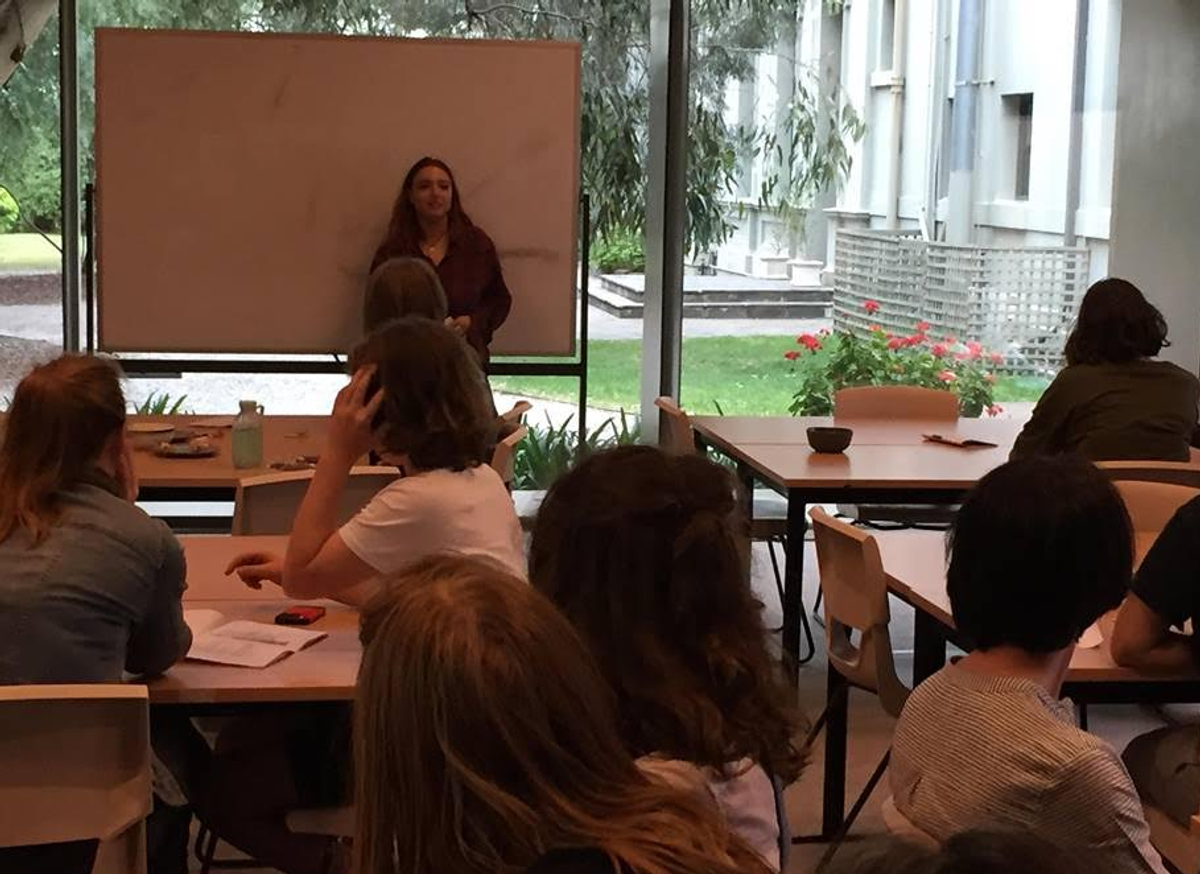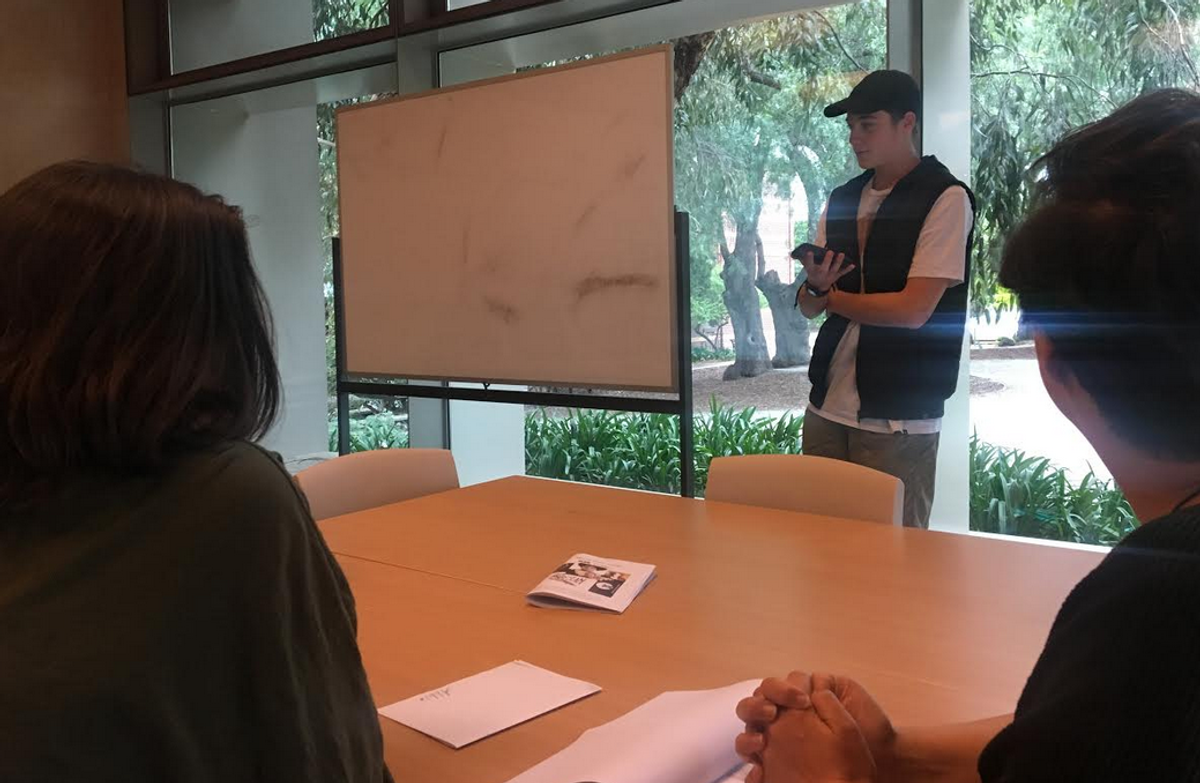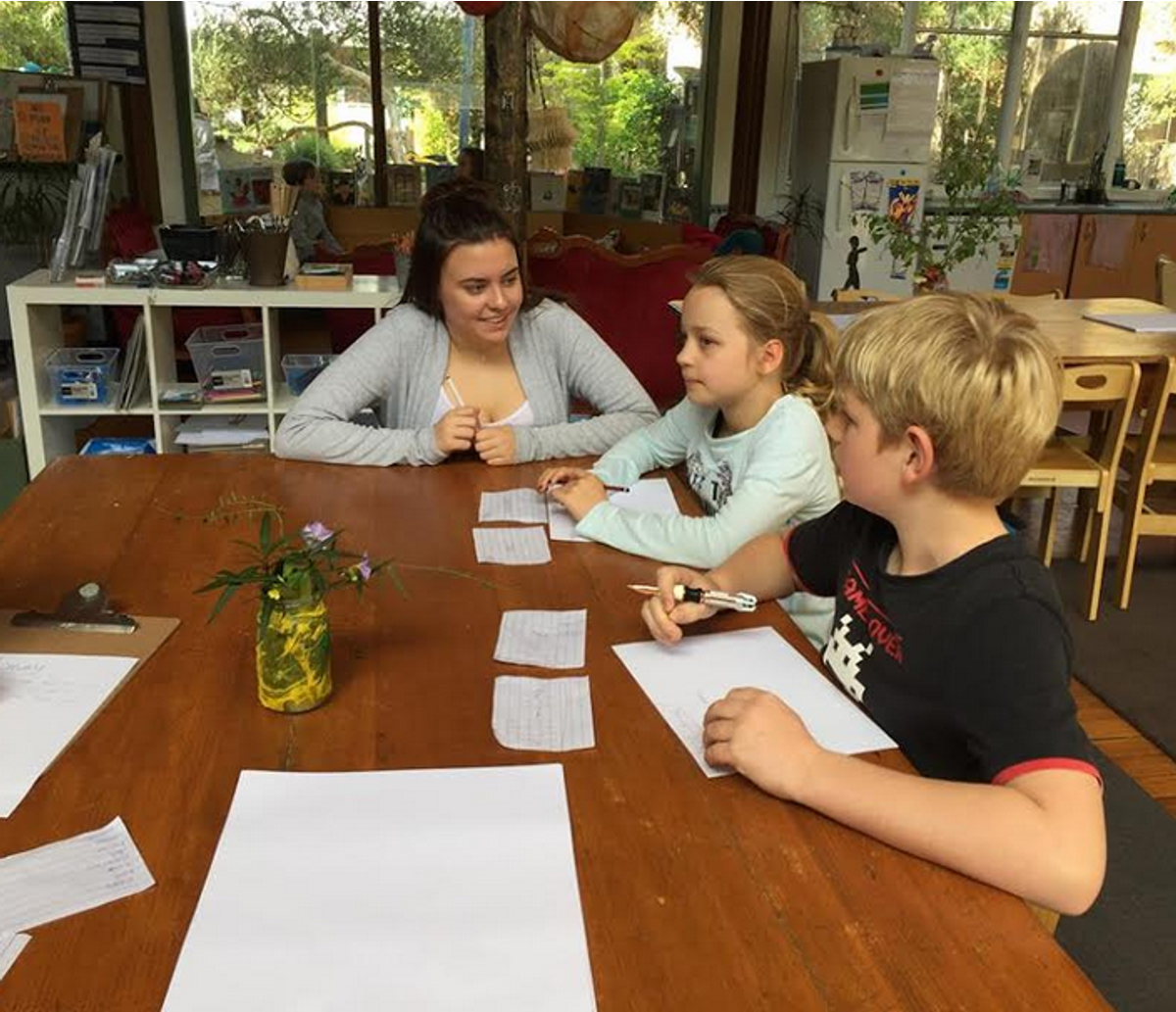Language & Literature
2018 valedictory hall poster created by a child from Arlington

Language & Literature
2018 valedictory hall poster created by a child from Arlington
by Kate Ellis, Year 10 Language & Literature teacher
Could English be an Arts subject? This was one of the questions raised during the showcase of Year 10 Poems and Year 9 Personal Narratives. Given the artistic way in which students expressed themselves through storytelling and poetry that afternoon, it was no wonder.


Emily Nancarrow, Jen Buchanan and I had been so inspired by the works created in our classes during Term 3 we decided to give students the opportunity to put on display their creations, as one might if they were studying Art, Music or Drama.


Comments made by those parents who attended were in regard to the bravery, vulnerability and truth of the works read by students. A fairly new student to the class said it was so wonderful to “get to know” others in this way; that having people read out poems about their lives gave her a deeper insight into the people she was now beginning to call friends.
The question raised during the Years 9 and 10 showcase came to mind again when one of the Year 10 English classes went to Arlington to work with children from the 8s and 9s and teachers Rachel Bowen, Michael Price and Claire Robertson. They had been considering how ‘all stories matter’, how we are the authors of our own stories and how different art forms can be used to tell those stories. Having studied Poetry in Term 3, a group of Year 10 students visited the 8s and 9s to support and guide them through what poetry is, its value and how we can write it.
Upon leaving the Primary School all Year 10 students commented on how they felt they’d been taught; that the roles had been reversed. One Year 10 student said “they’ve restored my faith in humanity”. Another commented on how they’d expanded her mind and another on how philosophical they all were. We talked all the way back to the Secondary School about how children are humans with their own stories, their own universes and their own unique perspectives.


Poems were written on the varying things that matter to this wondrous group of young people at this time in their lives. Everything from icy-poles to Pokémon… the relief water brings when feeling anxious… or how energy brings happiness.
Read below for some of the answers given when posed to the 8s and 9s… What is poetry?
o Poetry is a different form of telling a story.
o … something that rhymes and can be really deep.
o Can change people’s perspective on things.
o I love feminist poems.
o Most of the time… even if you don’t think they do… they often have a meaning.
o It doesn’t have to matter to anyone else, because it is important to you.
o When I write poetry it is often from daily life - observations of little things, they may not be conscious decisions to write about a big idea.
o You are never the age you want to be. We change so much every second... (upon hearing a poem about childhood and nostalgia).
o We are all connected to each other and the world. If you write about the sunrise, it is not just about the sunrise, it is about being connected to the sun for survival and life.
The study of language and literature isn’t simply about reading books and writing persuasive essays.
Year 10 students are currently getting a short, introductory study in Linguistics before they move onto their Year 11 transition classes. They have studied the origins of both particular languages and certain words (etymology); and they have now begun studying semantics – the meaning of words, in particular what makes meaning.




What came up for classes was, understanding what a word means to any one particular person may improve relationships. It may help to communicate and empathise on a deeper level with the person you are speaking with. Asking a clarifying question for instance in the heat of the moment, ie “What did you mean when you said…?” could mean you avoid an argument or taking something personally.
One student went further and suggested… knowing what a word means to someone might also give you power to destroy them… To which point we started talking more about politics and relations between countries.
The study of English can greatly improve our communication skills and therefore our relationships.